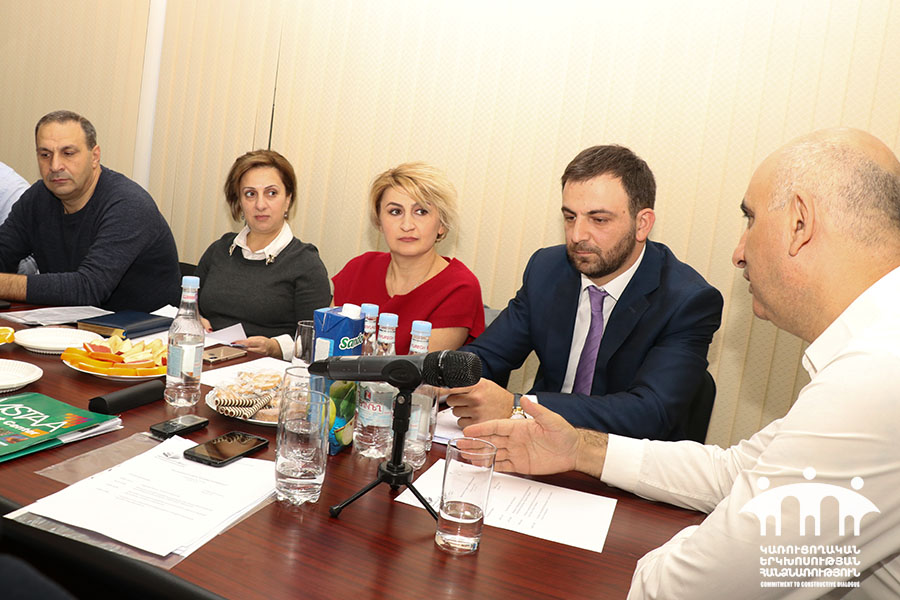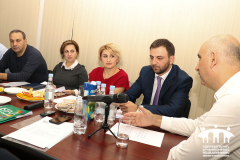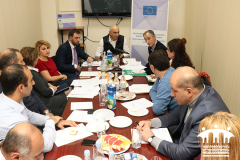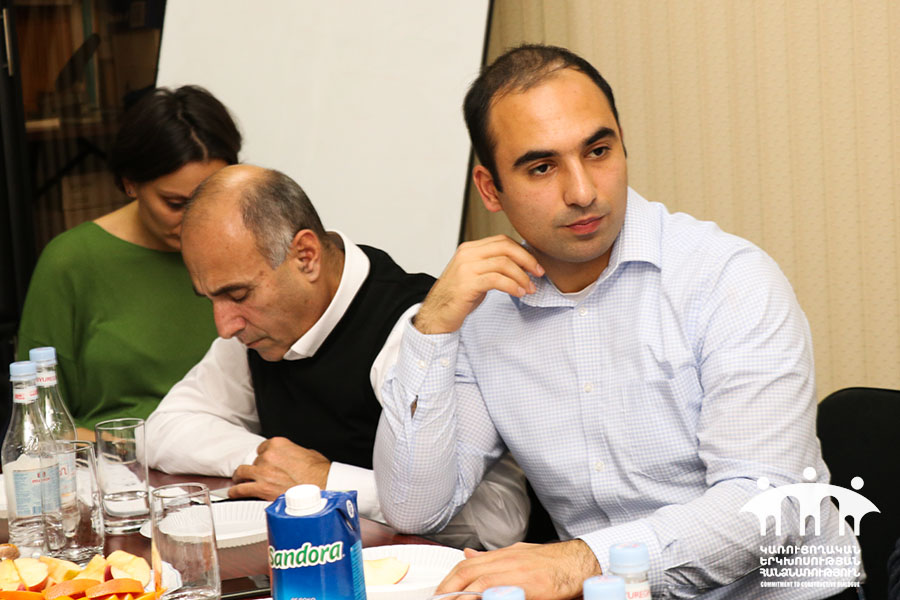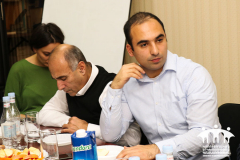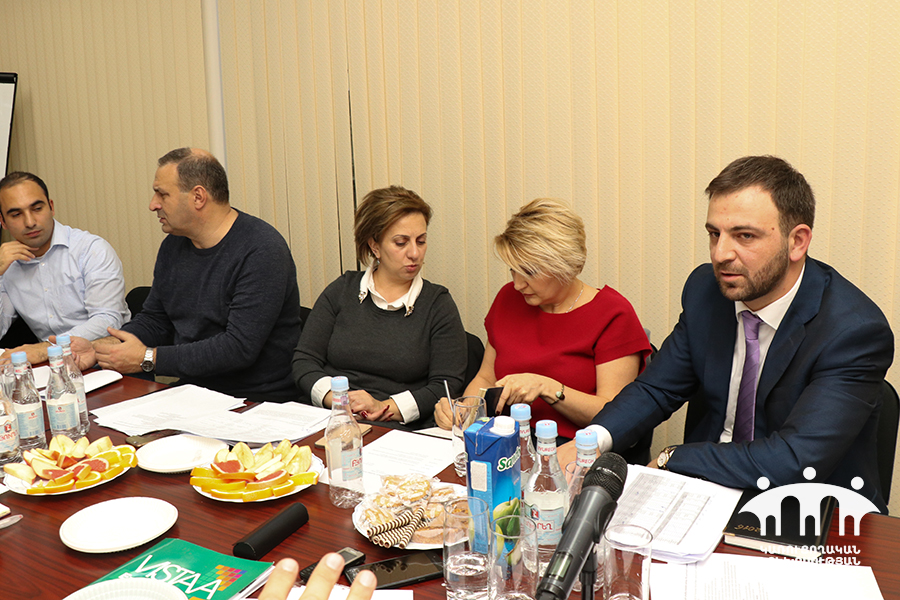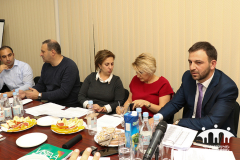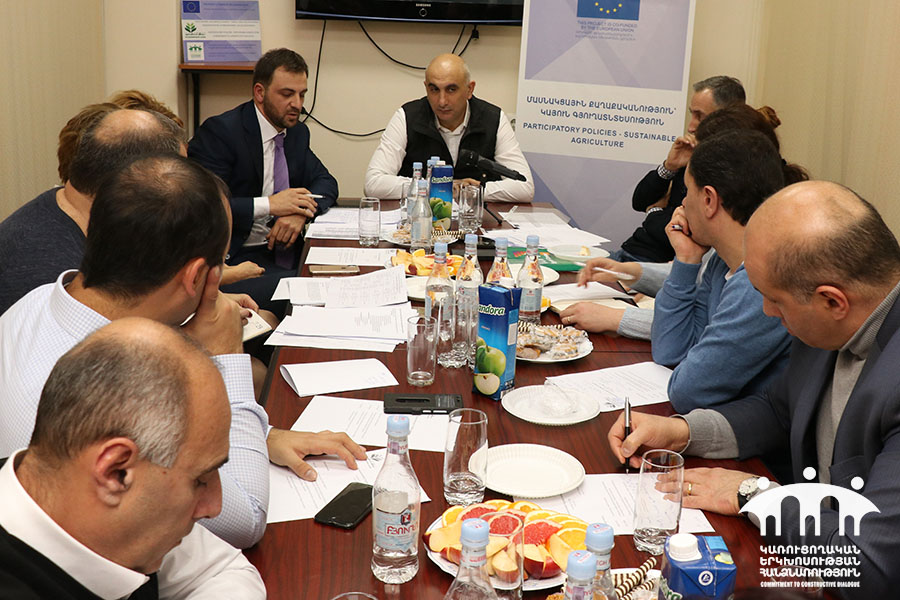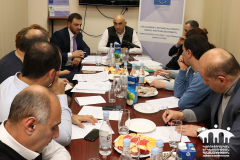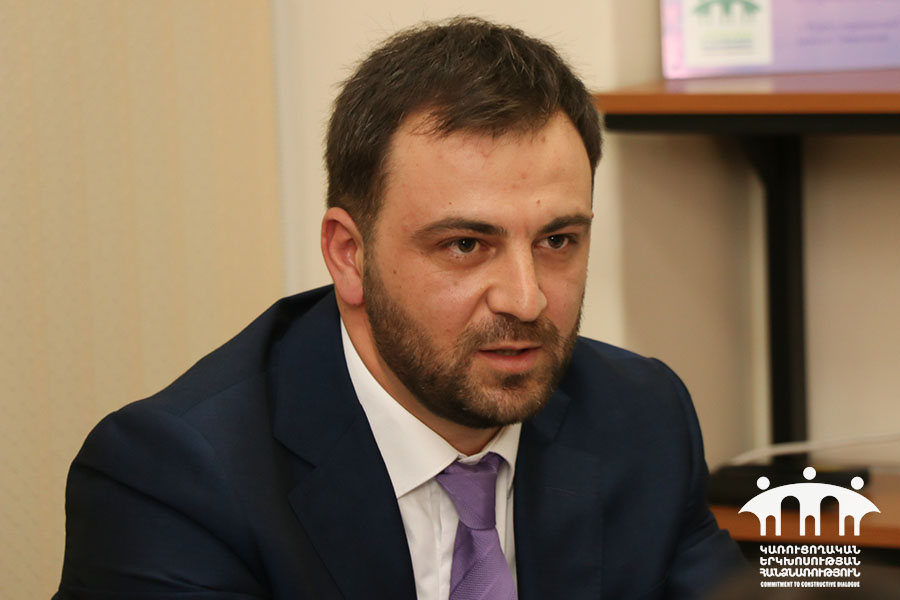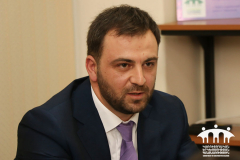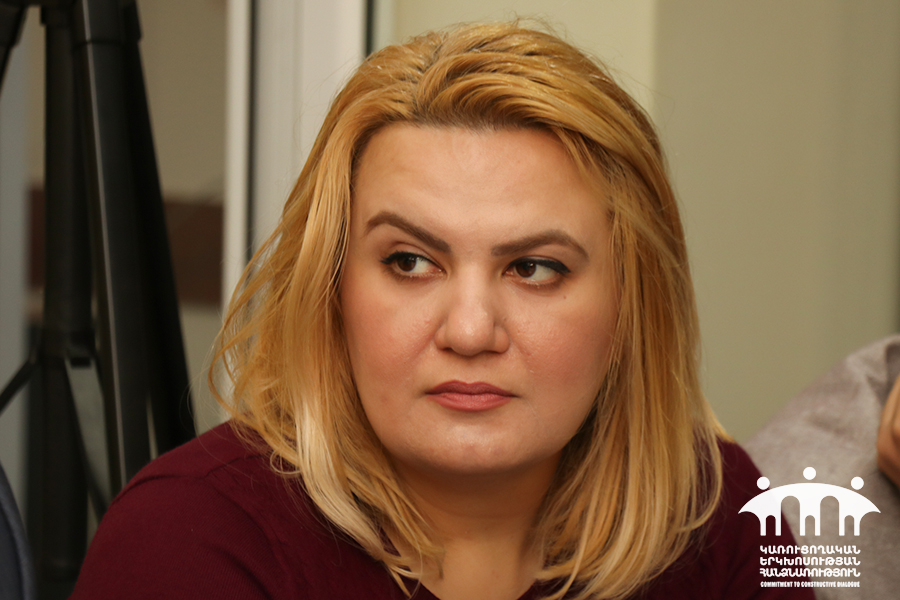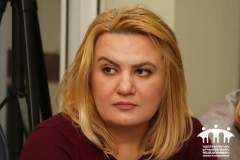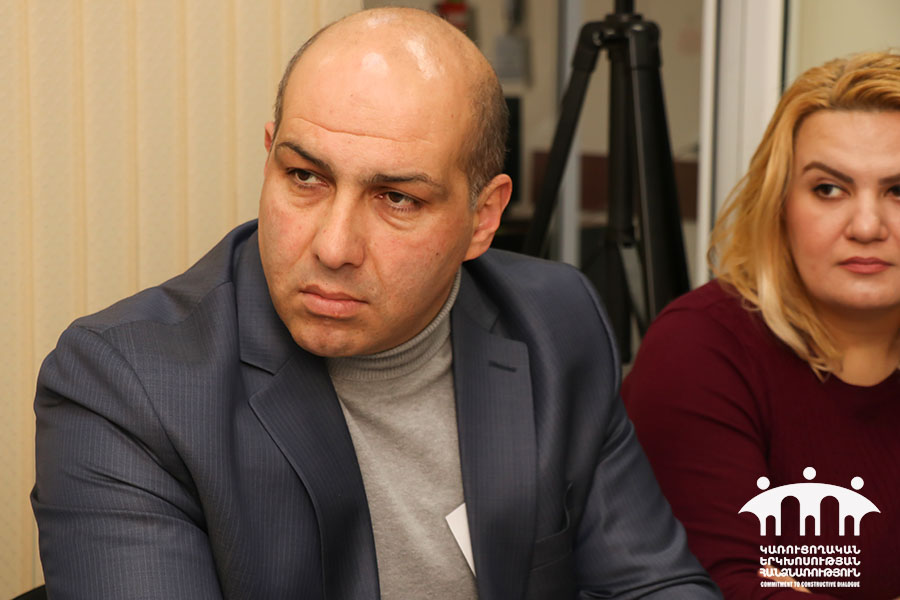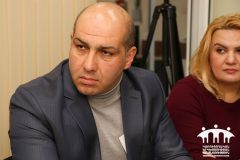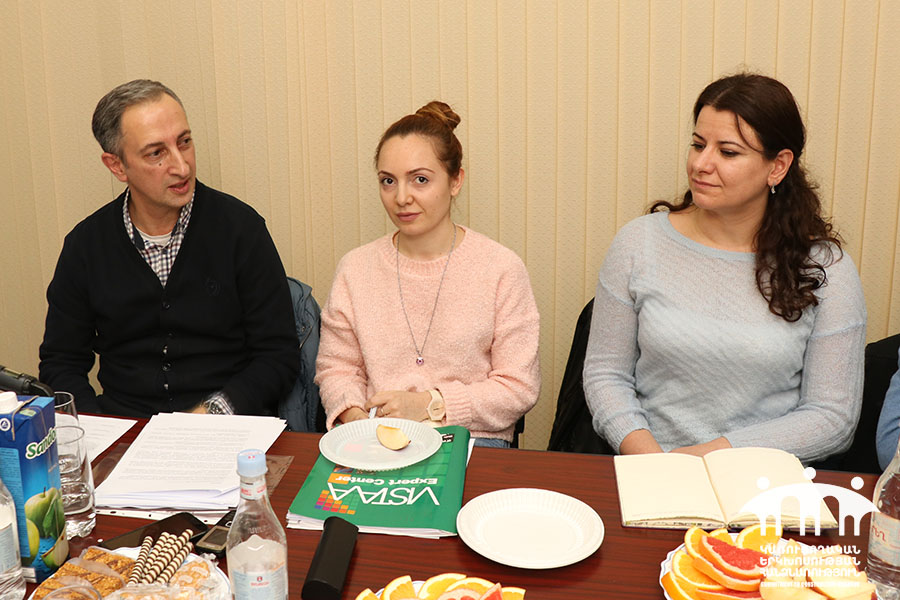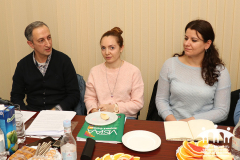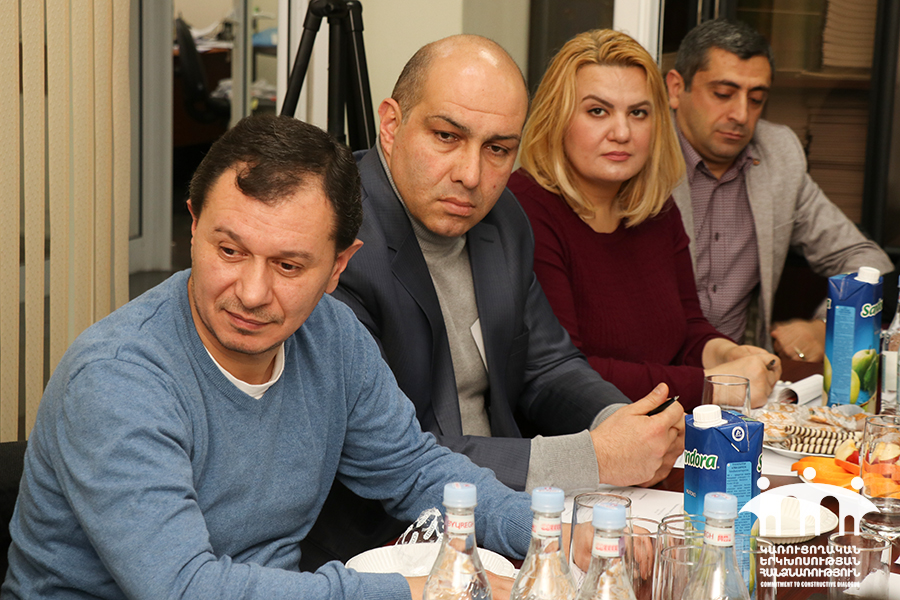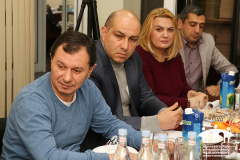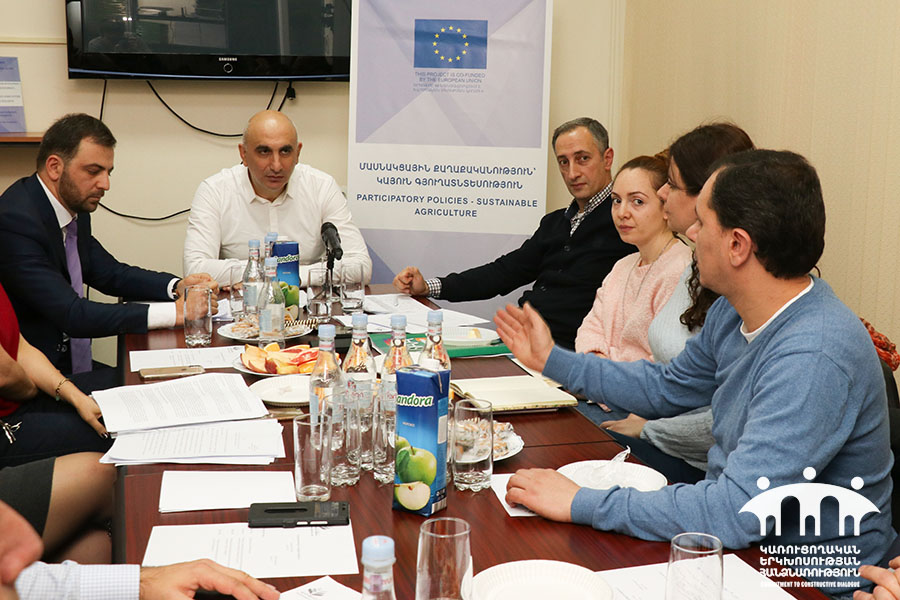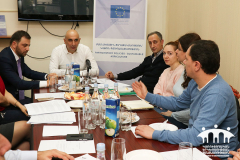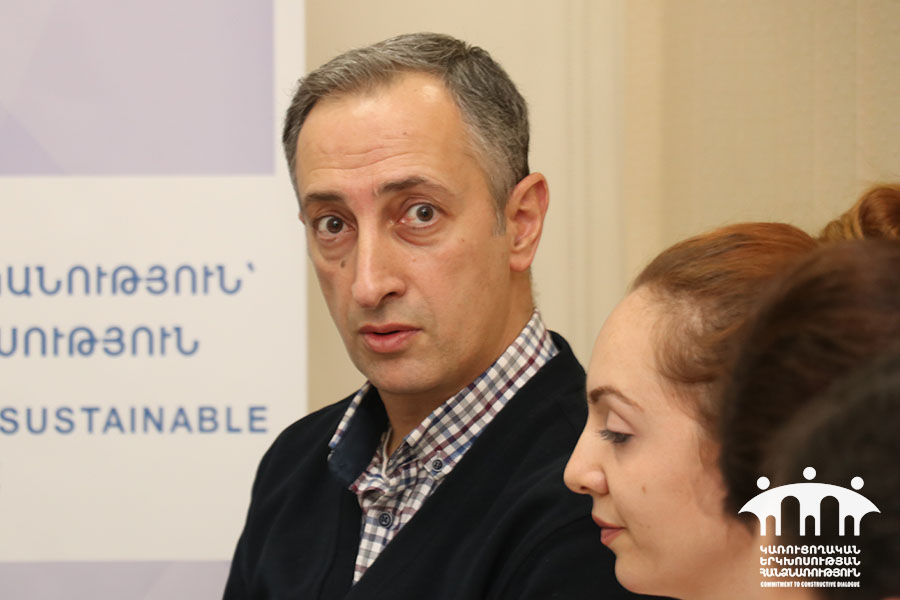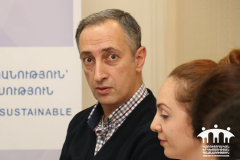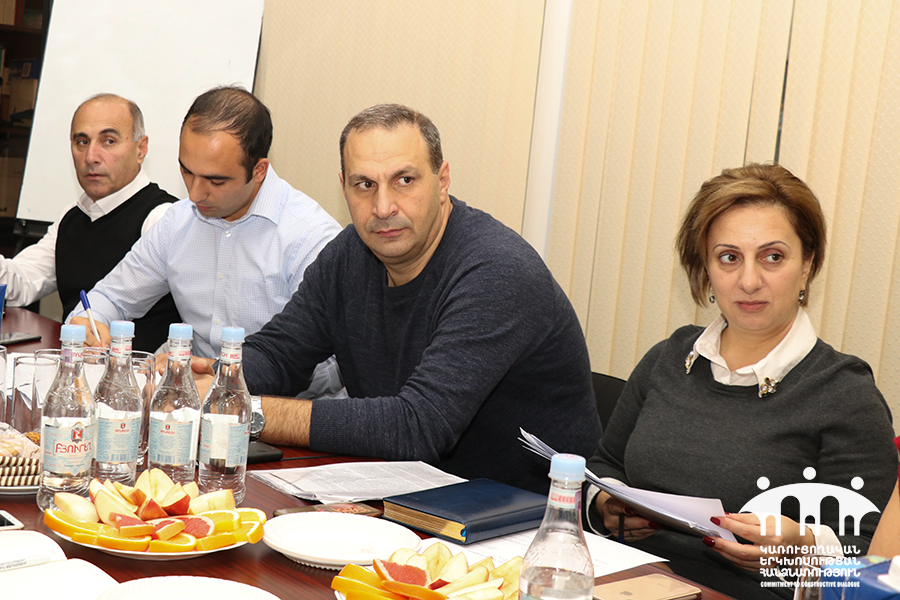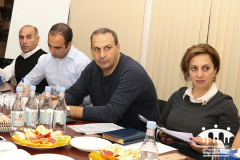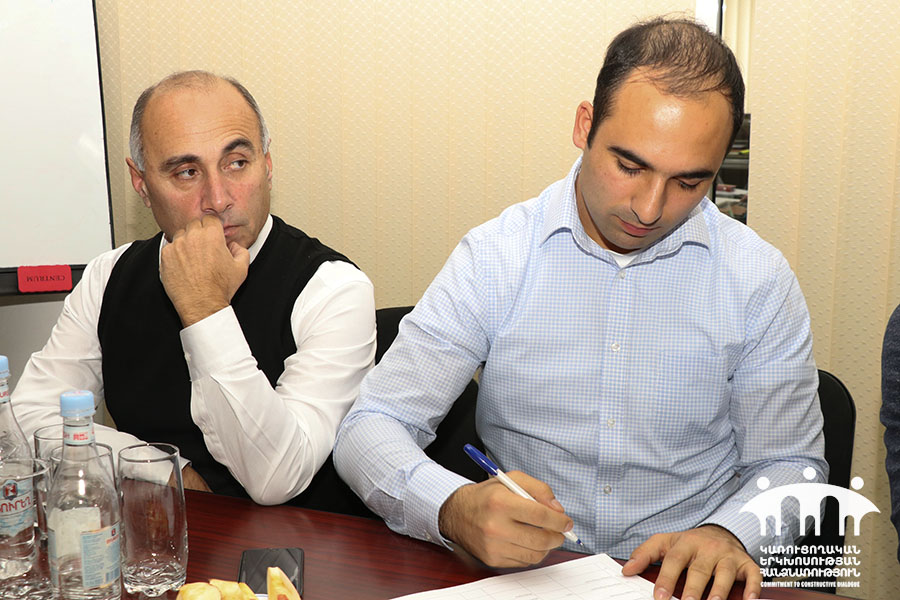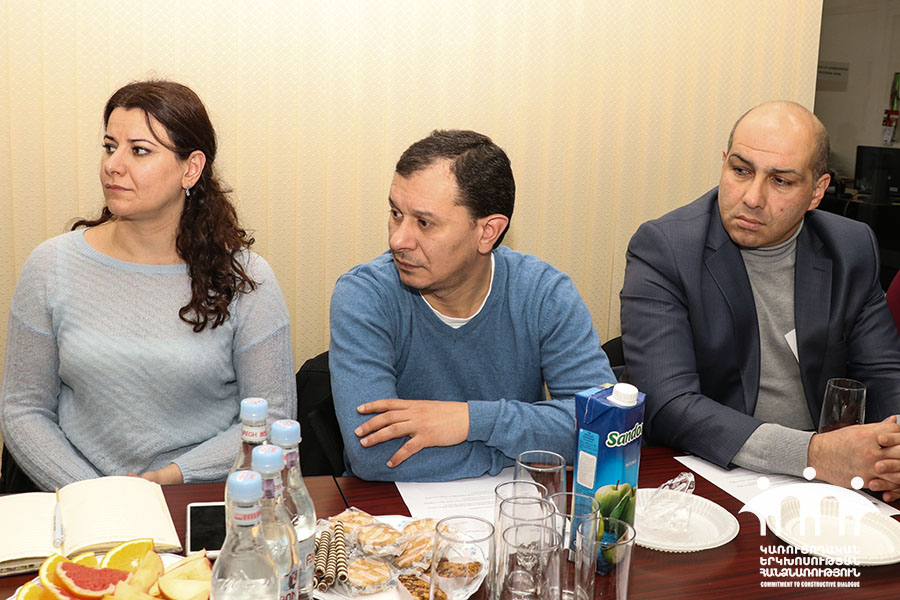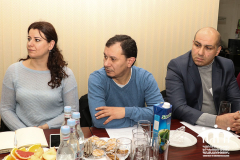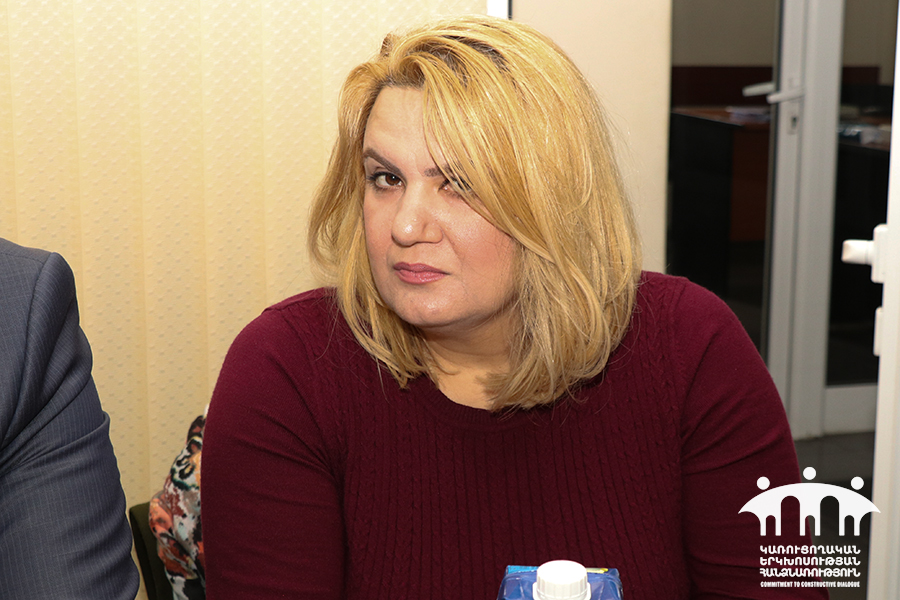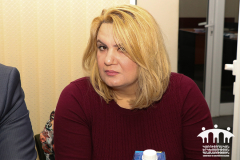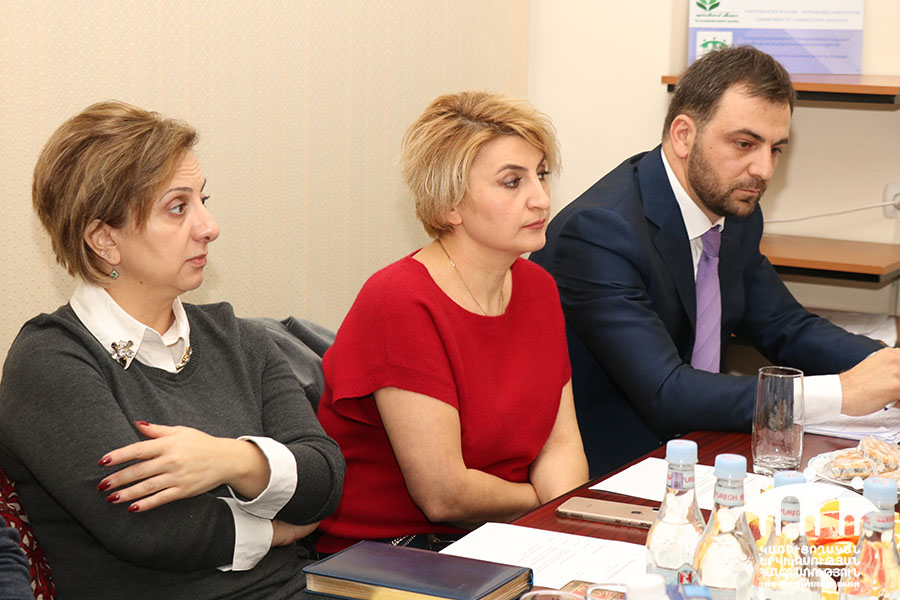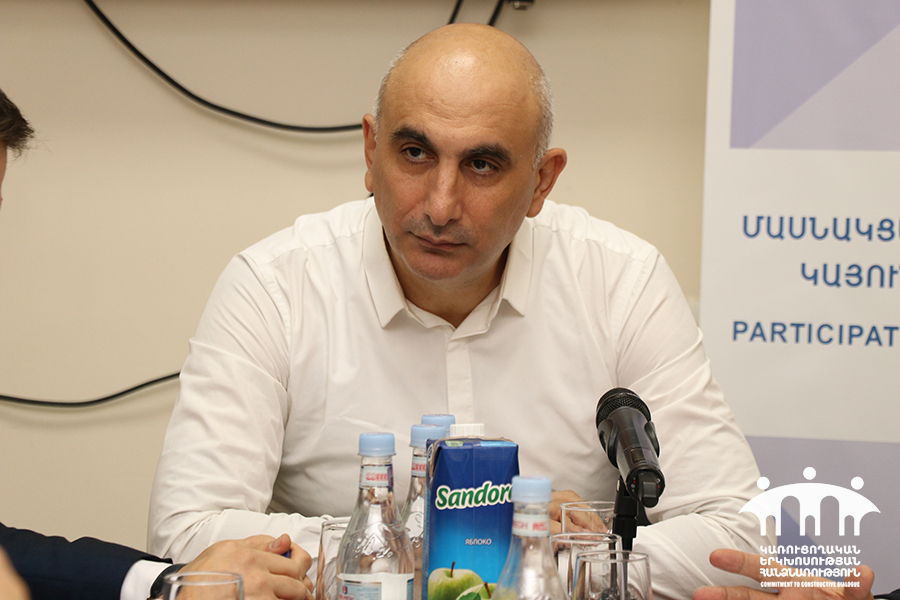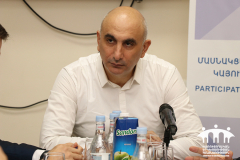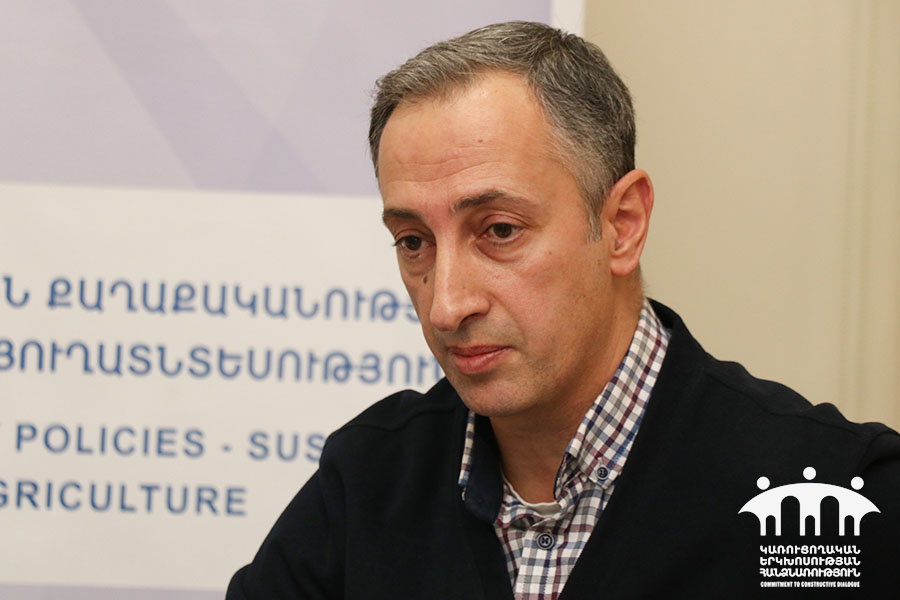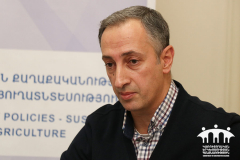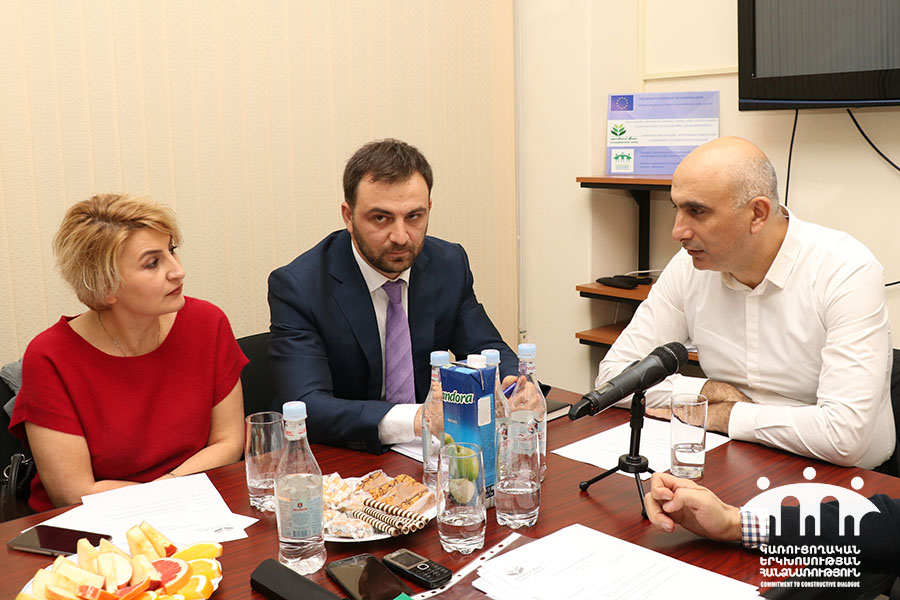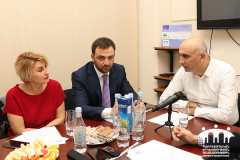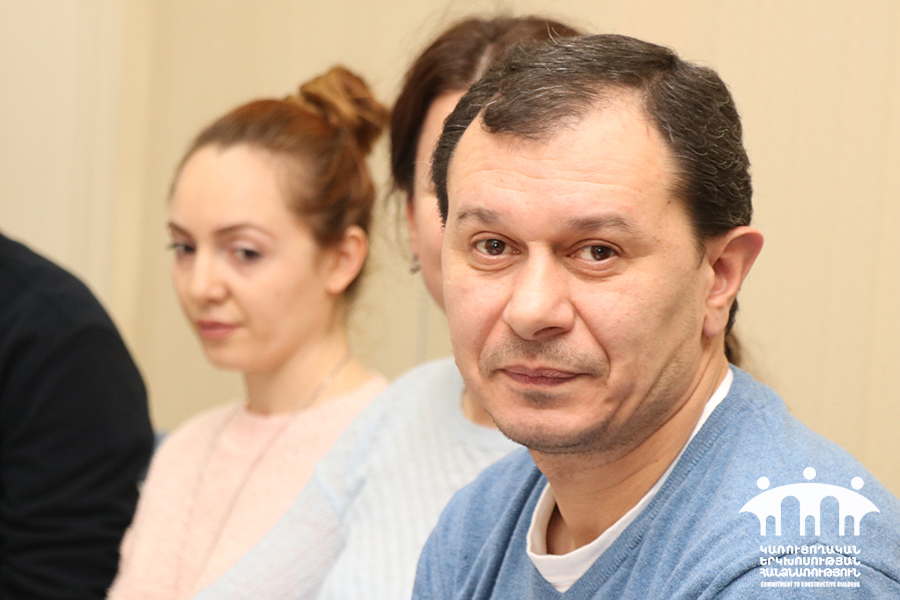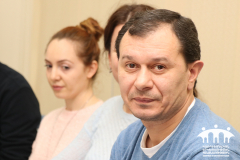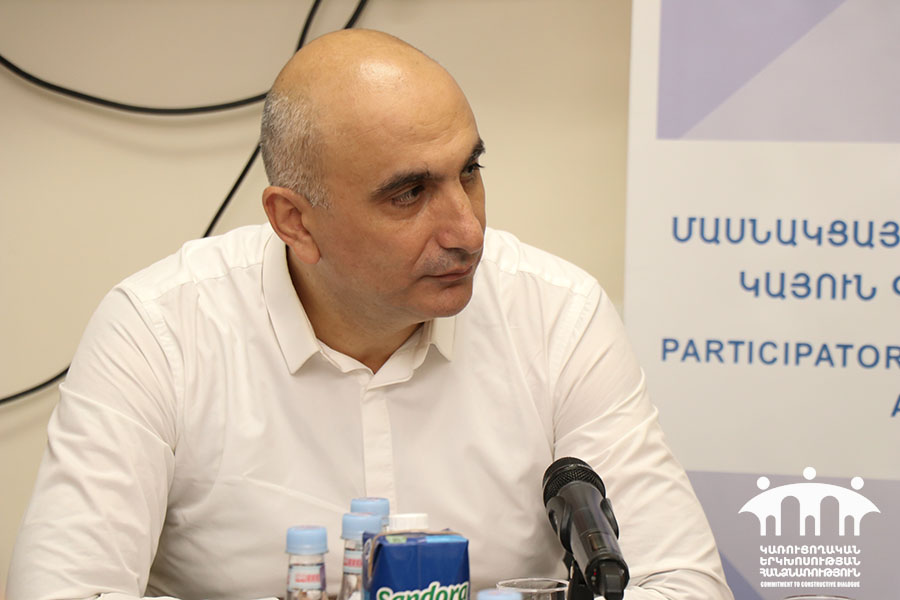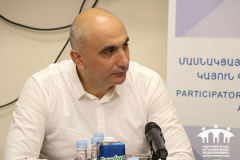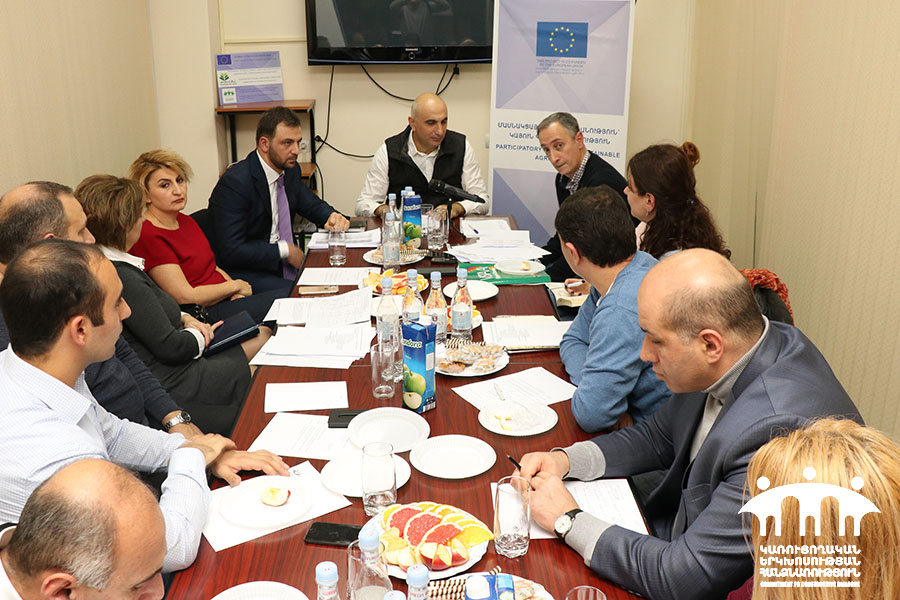
On 30 November 2018, yet another meeting of the Agricultural Alliance took place at the Agribusiness and Village Development Centre Foundation. The goal of the meeting was to present the results of some activities implemented by the Alliance within the “Participatory Policies – Sustainable Agriculture” project, as well as to discuss the work aimed at strengthening the Alliance.
The “Participatory Policies-Sustainable Agriculture” sub-grant project is implemented in the scope of the “Commitment to Constructive Dialogue” project funded by the European Union through 7 member organisations of the Agricultural Alliance.
Karen Zadoyan, the “Commitment to Constructive Dialogue” Project Manager and the President of the Armenian Lawyers’ Association, was also present at the meeting. Speaking about the support given to 9 coalitions in the scope of CCD, he attached great importance to the role of alliances in policy development, especially after the revolution.
“4 Town Hall discussions have been held in marzes by the Agricultural Alliance, quite a significant amount of materials has been collected. It will prove useful in the process of public policy making in the sector,” noted Mr. Zadoyan.
During the meeting, the experts of the Alliance presented the developments of the state support programme monitoring research, as well as the research aimed at the development of agricultural cooperatives.
The “Commitment to Constructive Dialogue” project is implemented with the financial support of the European Union by a consortium of civil society organizations, which are the “Armenian Lawyers’ Association” NGO, Agora Central Europe o.p.s (an NGO from the Czech Republic), the “Armenian Center for Democratic Education-CIVITAS” NGO, the “International Center for Human Development” Public Organization, the “SME Cooperation Association” NGO and the Union of Communities of Armenia.
The overall objective of the project is to enhance the influence of CSOs and their coalitions (networks) on the public policy process. This will enable the organizations (that already work in target coalitions) to gain new resources, unite civil society experts and encourage them to participate in the formation of local and national policy agenda, identify the common problems and priorities and to apply to the government with constructive and strategic policy initiatives.
In the scope of the project, sub-grants will be allocated to CSOs and CSO coalitions, aiming at public policy development and achieving tangible results in the 9 target sectors: justice, human rights, public finance management, business, education, social sector: social inclusion of children with disabilities, agriculture, economy, energy.


